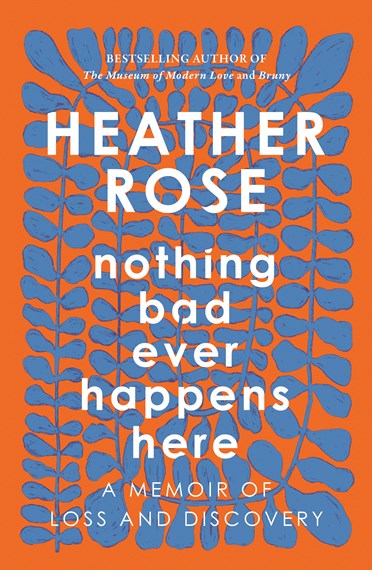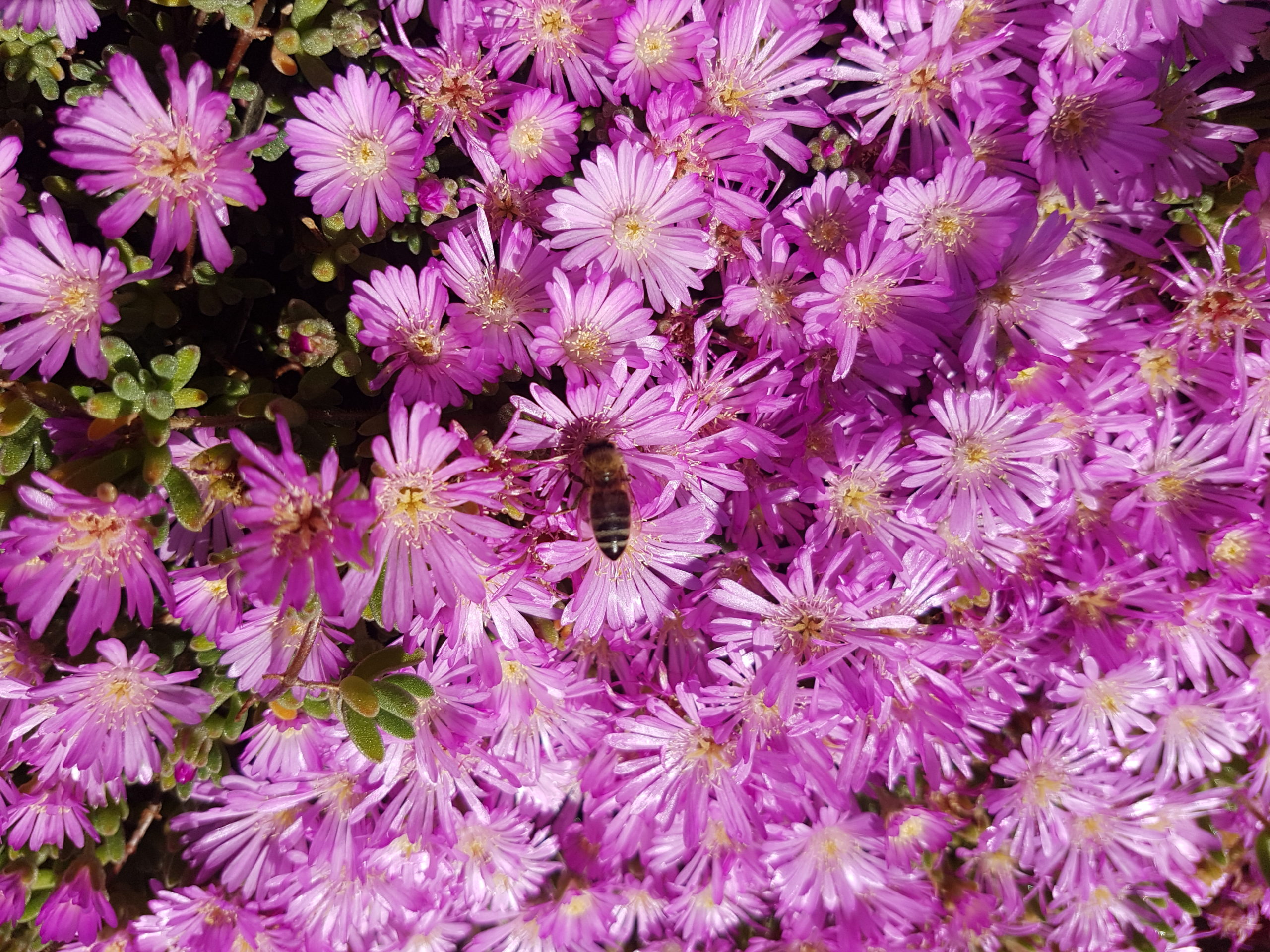 I’d read and enjoyed two very different books by Heather Rose – the luminous and moving Stella Prize winner The Museum of Modern Love and the gripping political thriller Bruny.
I’d read and enjoyed two very different books by Heather Rose – the luminous and moving Stella Prize winner The Museum of Modern Love and the gripping political thriller Bruny.
I’d never read an interview with her, and I didn’t know anything about her – apart from the fact that she’s a Tasmanian and a writer. When I saw that she’d published a memoir, I guess I imagined it was going to be about Tasmania. Or writing.
I was unprepared for Nothing Bad Ever Happens Here. I was reminded, not always pleasantly, of my own past.* I wasn’t sure if this book was for me at all. It seemed awfully...well…woo woo.
And then, more than half way through, I somehow managed to let go of my derogatory labels and simply read. It’s a wild ride at times, and not one I’d wish to join, but as with the best books, when I closed the covers I felt enlarged and humbled by access to another person’s experience.
Rose is slightly younger than me, but I recognise much about her idyllic childhood; the 1960s really were simpler times. She grew up in Tasmania, close to family and friends, close to nature.
Childhood is kelp and sand, birds and sky and boats pulled up with the tide…
Already a sensitive and spiritually attuned child, when she was 12 her world was rocked by the death by drowning of her brother and grandfather. The subsequent break-up of her parent’s marriage blew her family apart and she became a seeker. She left Australia to immerse herself in life, which turned out to be travel in South East Asia, drugs, and months at a Buddhist meditation centre in the forest of Laos. Returning to Australia, she immersed herself in a different kind of life; wife, mother, friend, daughter, writer, businesswoman (she ran an advertising agency and employed 12 people). But there were also trips to the American south-west for gruelling Lakota rituals and later, a New Age retreat in the Australian desert that – literally – blew her mind.
 Through all of this, Rose comes across as brave, curious and at times disarmingly (or even alarmingly) naive. She tells her story without tricks of language or style; seemingly, no tricks at all. It is a beautifully clear, lucid telling of her truth. The section, near the end, where she talks about her life with chronic pain, is quietly devastating and her revelation of that ever-present struggle for me makes sense of what has gone before. She closes the memoir with a list of suggestions – like trust your instincts, watch the sunrise, be grateful – which could read as Hallmark philosophy. But – it’s all hard-won. Rose has lived most of her life with loss, death and pain so that the final instruction – choose joy – seems courageous and poignant. It may well become my advice to myself for the coming year.
Through all of this, Rose comes across as brave, curious and at times disarmingly (or even alarmingly) naive. She tells her story without tricks of language or style; seemingly, no tricks at all. It is a beautifully clear, lucid telling of her truth. The section, near the end, where she talks about her life with chronic pain, is quietly devastating and her revelation of that ever-present struggle for me makes sense of what has gone before. She closes the memoir with a list of suggestions – like trust your instincts, watch the sunrise, be grateful – which could read as Hallmark philosophy. But – it’s all hard-won. Rose has lived most of her life with loss, death and pain so that the final instruction – choose joy – seems courageous and poignant. It may well become my advice to myself for the coming year.
* So: reminded of my past? Like Rose, when I was younger I was often on a quest to understand my place in the world. Where do I fit, in among the magnificence of stars and trees and oceans, and the broken ugliness and mess of our human lives? This high-mindedness was mixed with a fair bit of self-absorbed drama-queen flakiness. So, in no particular order: astrology, runes, tarot, the I Ching, past-life regression, rebirthing, flotation tanks, chanting, dream workshops, a terrifying sweat lodge out in the wilds of Trentham. I’ve seen ghosts, had premonitions. A dream once saved my life. These days, however, I am much more circumspect and conventional about spirituality. My life has taken its particular shape and into my sixth decade now, I feel my search is no longer an urgent matter. But who knows? As I age and approach death, or as dear ones die, that all might change.
